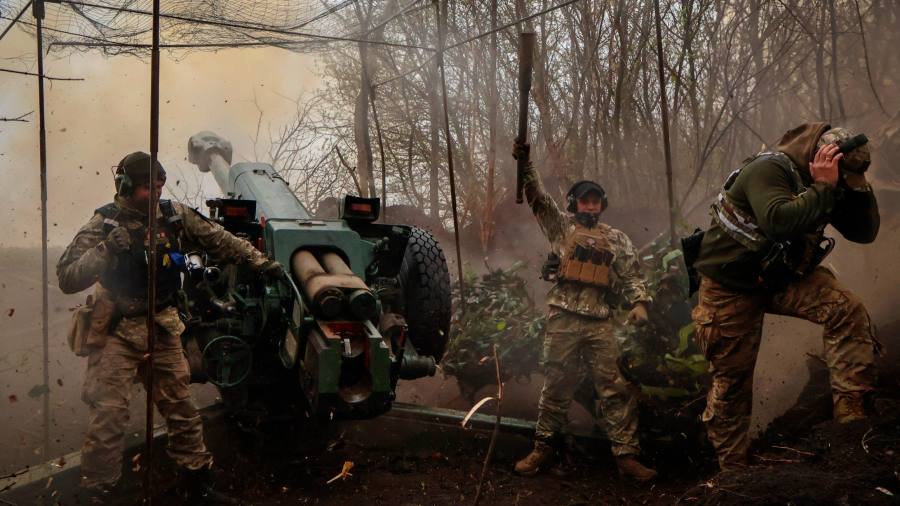The US has warned four European countries about the methods Russia is using to evade sanctions and provided them with a detailed list of the high-value dual-use goods it is trying to acquire, as Washington steps up efforts to stop Moscow procuring weapons for the war in Ukraine.
Brian Nelson, US Treasury under secretary for terrorism and financial intelligence, visited Switzerland, Austria, Italy and Germany this week on a tour designed to show how Russia is trying to repair its degraded military industrial supply chains by getting round western export controls.
“Russia is throwing a lot of resources at circumventing our sanctions,” a US official said, adding that it was learning from other heavily sanctioned countries such as Iran about how to obtain sensitive technologies through the back door.
The US has identified the goods Russia is most keen on acquiring as optics such as oscillators, oscilloscopes and thermal imaging components, electronic components such as semiconductor-based transducers and field programmable gate arrays — a kind of integrated circuit — and machines for measuring voltage and power. The Treasury did not specify what weapons these goods are used for.
Officials also sought to alert officials, companies and banks in the four countries to “potential red flags” that might indicate sanctions evasion, such as falsifying contracts and bills of lading to conceal ties to Russia, a refusal to provide details of the intended end-use of a product to banks and shippers and frequent or last-minute changes to end users or payees.
The US and its G7 partners have made removing sanctions loopholes and combating evasion their priority in recent months as the appetite for sanctioning new parts of Russia’s economy wanes.
A joint effort by US, UK and EU officials launched this spring targeted countries such as the United Arab Emirates, Turkey and Central Asian states suspected of being conduits for technology and machinery exports to Russia that are then repurposed by its defence industry.
The US official said even some countries that had publicly opposed Russia’s war were “falling short on actions to ensure that Russia can’t exploit their companies and banks to equip its military”.
There had, he added, been a “number of troubling patterns in several countries, including in the Middle East and among several of Russia’s neighbours, where the Kremlin has deepened its financial ties and trade flows as other markets have been closed off”.
He said Russia had responded to disruptions to its supply chains since the war began by getting its intelligence services to identify international businesses to work with. Russia was also, he said, seeking to “backfill lost inputs by repurposing goods” such as microchips from non-military electronics, as well as retooling its manufacturing facilities.
The west’s priority must be, he said, to deny Russia access to dual-use goods and “cut off these repurposed manufacturing facilities from the inputs needed to fill production gaps”.
That task was becoming more urgent because the conflict was approaching a “critical inflection point”, he said. Western defence officials say Ukraine is preparing a spring counteroffensive against occupying Russian troops that could determine the course of the war.
This month the US announced new measures targeting individuals and entities alleged to have assisted in sanctions evasion, as part of an effort to tighten the restrictions faster than Moscow can develop new means to get around them.
“The criteria for sanctions circumvention should be enlarged,” said one senior EU diplomat. “That will further tighten the noose around [Putin’s] neck when it comes to being able to finance his war of aggression.”
David O’Sullivan, the EU sanctions envoy, recently travelled to the UAE, Turkey and Kyrgyzstan to convey the west’s tough message. Next week he will visit Kazakhstan with Elizabeth Rosenberg, a senior US treasury official, and then head to Uzbekistan, Serbia, Georgia and Armenia before the end of May.
“These sanctions are going to be here for a long time,” he told reporters in Washington on Wednesday. “So certainly on the European side, there is an ongoing reflection about [how] we should organise ourselves slightly differently in order to manage this task, which is going to be ahead of us for a number of years.”
Read the full article here




